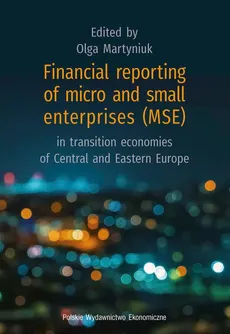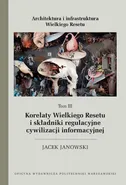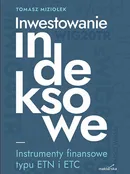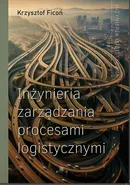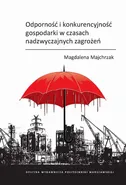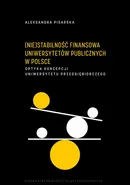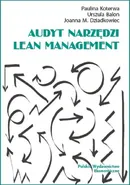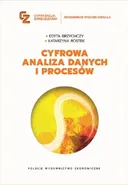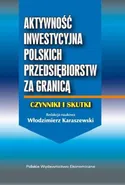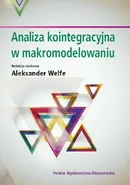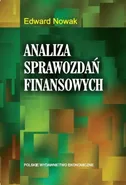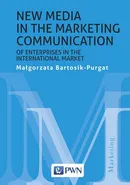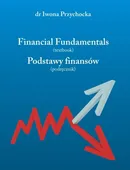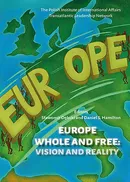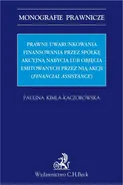Financial reporting of micro and small enterprises (MSE) in transition economies of Central and Eastern Europe
The study attempts to address three research problems:
1. What is the status and significance of the MSE-sector enterprises in selected CEE countries?
2. What reporting obligations do enterprises from the MSE sector have?
3. What is the possible improvement orientation with regard to MSE-sector reporting in the CEE countries in terms of sustainable development?
This monograph aims to conduct a cross-country comparative analysis of the
financial reporting requirements of
micro and small enterprises a few years after the introduction of Directive 2013/34/EU. It assesses the reporting requirements of micro and small enterprises in 9 Central and Eastern European countries that have undergone systemic transformations. Since these countries are diverse in terms of the geographical, historical, systemic and political factors that affect them and the economic policy directions adopted after the changes, they have been divided into two groups:
1. European Union Member States – Croatia, Lithuania, Latvia, Poland, Slovenia, Romania;
2. countries that are not members of the European Union – Belarus, Moldova, and Ukraine.
The study consists of 11 chapters, divided into three parts. The content of individual parts is related to:
1. The socio-economic environment of the MSE sector in selected countries of Central and Eastern Europe (CEE) and the financial reporting in global economy (chapters 1 and 2).
2. The financial reporting of micro and small enterprises in selected CEE countries – Belarus, Croatia, Latvia, Lithuania, Moldova, Romania, Poland, Slovenia, Ukraine (chapters 3–11).
3. A comparative analysis of the reporting requirements of micro and small enterprises surveyed (Summary).
Due to the role the MSE-sector enterprises play in global economy, the research and analysis conclusion indicates recommendations regarding the harmonization of the reporting requirements for the enterprises of the MSE sector in the CEE countries that have undergone systemic transformations.
- Kategorie:
- ISBN: 978-83-208-2438-4
- ISBN druku: 978-83-208-2426-1
- Liczba stron: 328
-
Sposób dostarczenia produktu elektronicznegoProdukty elektroniczne takie jak Ebooki czy Audiobooki są udostępniane online po opłaceniu zamówienia kartą lub przelewem na stronie Twoje konto > Biblioteka.Pliki można pobrać zazwyczaj w ciągu kilku-kilkunastu minut po uzyskaniu poprawnej autoryzacji płatności, choć w przypadku niektórych publikacji elektronicznych czas oczekiwania może być nieco dłuższy.Sprzedaż terytorialna towarów elektronicznych jest regulowana wyłącznie ograniczeniami terytorialnymi licencji konkretnych produktów.
-
Ważne informacje techniczneMinimalne wymagania sprzętowe:procesor: architektura x86 1GHz lub odpowiedniki w pozostałych architekturachPamięć operacyjna: 512MBMonitor i karta graficzna: zgodny ze standardem XGA, minimalna rozdzielczość 1024x768 16bitDysk twardy: dowolny obsługujący system operacyjny z minimalnie 100MB wolnego miejscaMysz lub inny manipulator + klawiaturaKarta sieciowa/modem: umożliwiająca dostęp do sieci Internet z prędkością 512kb/sMinimalne wymagania oprogramowania:System Operacyjny: System MS Windows 95 i wyżej, Linux z X.ORG, MacOS 9 lub wyżej, najnowsze systemy mobilne: Android, iPhone, SymbianOS, Windows MobilePrzeglądarka internetowa: Internet Explorer 7 lub wyżej, Opera 9 i wyżej, FireFox 2 i wyżej, Chrome 1.0 i wyżej, Safari 5Przeglądarka z obsługą ciasteczek i włączoną obsługą JavaScriptZalecany plugin Flash Player w wersji 10.0 lub wyżej.Informacja o formatach plików:
- PDF - format polecany do czytania na laptopach oraz komputerach stacjonarnych.
- EPUB - format pliku, który umożliwia czytanie książek elektronicznych na urządzeniach z mniejszymi ekranami (np. e-czytnik lub smartfon), dając możliwość dopasowania tekstu do wielkości urządzenia i preferencji użytkownika.
- MOBI - format zapisu firmy Mobipocket, który można pobrać na dowolne urządzenie elektroniczne (np.e-czytnik Kindle) z zainstalowanym programem (np. MobiPocket Reader) pozwalającym czytać pliki MOBI.
- Audiobooki w formacie MP3 - format pliku, przeznaczony do odsłuchu nagrań audio.
Rodzaje zabezpieczeń plików:- Watermark - (znak wodny) to zaszyfrowana informacja o użytkowniku, który zakupił produkt. Dzięki temu łatwo jest zidentyfikować użytkownika, który rozpowszechnił produkt w sposób niezgodny z prawem. Ten rodzaj zabezpieczenia jest zdecydowanie bardziej przyjazny dla użytkownika, ponieważ aby otworzyć książkę zabezpieczoną Watermarkiem nie jest potrzebne konto Adobe ID oraz autoryzacja urządzenia.
- Brak zabezpieczenia - część oferowanych w naszym sklepie plików nie posiada zabezpieczeń. Zazwyczaj tego typu pliki można pobierać ograniczoną ilość razy, określaną przez dostawcę publikacji elektronicznych. W przypadku zbyt dużej ilości pobrań plików na stronie WWW pojawia się stosowny komunikat.
Introduction Olga Martyniuk, University of Gdansk, Poland 1. Micro and small enterprises in selected countries of transition economies from Central and Eastern Europe 1.1. Characteristics of the transformation processes in selected countries Anna Szymczak, Sopot University of Applied Sciences, Poland Tomasz Kalinowski, Sopot University of Applied Sciences, Poland 1.2. Social, legal and economic environment of selected countries Anna Szymczak, Sopot University of Applied Sciences, Poland Tomasz Kalinowski, Sopot University of Applied Sciences, Poland 1.3. The definition of micro and small enterprises Olga Martyniuk, University of Gdansk, Poland Laurenţiu-Mihai Treapăt, National University of Political Studies and Public Administration, Romania Corina-Elena Drăgănescu, Spiru Haret University, Romania 1.4. The role of micro and small enterprises in transition economies Olga Martyniuk, University of Gdansk, Poland References 2. The financial reporting within the context of economy globalization Teresa Martyniuk, Sopot University of Applied Sciences, Poland 2.1. Accounting systems in the world 2.2. The conceptual framework of financial statements according to the International Financial Reporting Standards (IFRS) 2.3. Financial statements components 2.4. Annual financial statements of micro and small entities References 3. The financial reporting of the micro and small entities in Belarus Anastasiya Piakarskaya, Belarus State Economic University 3.1. Country introduction: Belarus – legal and economic environment of MSE sector 3.2. The MSE sector in Belarus 3.3. Legislation in financial reporting of the MSE sector in Belarus 3.4. Characteristics of annual financial statements of micro and small entities in Belarus References 4. The financial reporting of the micro and small entities in Croatia Kristina Mićin, University of Applied Sciences Baltazar Zaprešić, Croatia Petra Popek Biškupec, University of Applied Sciences Baltazar Zaprešić, Croatia 4.1. Country introduction: Croatia – legal and economic environment of MSE sector 4.2. The SME sector in Croatia 4.3. Accounting Law and Financial Reporting regulations in Croatia 4.4. Organization of financial reporting in Croatia 4.5. The structure of the financial statements of the micro and small entities in Croatia References 5. The financial reporting of the micro and small entities in Latvia Ramona Rupeika-Apoga, University of Latvia 5.1. Country introduction: Latvia – legal and economic environment of MSE sector 109 5.2. The MSE sector in Latvia 5.3. MSE financial reporting regulations and procedures in Latvia 5.4. The structure of the financial statements of the micro and small entities in Latvia References 6. The financial reporting of the micro and small entities in The Republic of Lithuania Lina Kloviene, Sheffield University Management School, England Lina Dagiliene, Kaunas University of Technology, School of Economics and Business, Lithuania 6.1. Country introduction: The Republic of Lithuania – legal and economic environment of MSE sector 6.2. Legal forms of micro and small entities in The Republic of Lithuania 6.3. Accounting Law and Financial Reporting regulations of the MSE sector in Lithuania 6.4. Financial reporting procedures 6.5. The structure of the financial statements of the micro and small entities in the Republic of Lithuania Appendix 1. Business Accounting Standards (Authority of Audit, Accounting, Property Valuation and Insolvency Management under the Ministry of Finance of the Republic of Lithuania) References 7. The financial reporting of micro and small enterprises in Moldova Cristina Dolghii, University State of Moldova, Republic of MoldovaIrina Golocialova, University State of Moldova, Republic of MoldovaViorel Tsurcanu, University State of Moldova, Republic of Moldova 7.1. Country introduction: The Republic of Moldova – legal and economic environment of MSE sector 7.2. The SME sector in Moldova 7.3. The concept and organization and legal types of enterprises in the Moldavian SME sector Irina Golocialova, University State of Moldova 7.4. Legislative and regulatory framework affecting the content of financial statements of organizations in the SME sector in Moldova Viorel Tsurcanu, University State of Moldova 7.5. Financial reporting procedures Cristina Dolghii, University State of Moldova 7.6. Characteristics of financial statements of the micro and small entities in Moldova References 8. The financial reporting of micro and small enterprises in Poland Beata Kotowska, University of Gdansk, Poland 8.1. Country introduction: Poland – legal and economic environment of MSE sector 8.2. Legal forms of micro and small entities in Poland 8.3. The MSE sector in Poland 8.4. Legal framework of financial reporting in the MSE sector in Poland 8.5. Financial reporting procedures 8.6. Characteristics of financial statements of the micro and small entities in Poland References 9. The financial reporting of micro and small enterprises in Romania Laurenţiu-Mihai Treapăt, National University of Political Studies and Public Administration, RomaniaCorina-Elena Drăgănescu, Spiru Haret University, Romania 9.1. Country introduction: Romania – legal and economic environment of MSE sector 9.2. The SME sector in Romania 9.3. The legal framework and the organisation of the accounting activity in Romania 9.4. The financial reporting procedures in Romania 9.5. Characteristics of financial statements of the micro and small entities in Romania Appendix 1. Layout of The Balance Sheet Appendix 2. Layout of The Profit and Loss Account References 10. The financial reporting of micro and small enterprises in Slovenia Anita Maček, DOBA Business School, Slovenia Pedja Ašanin Gole, DOBA Business School, Slovenia 10.1. Country introduction: Slovenia – legal and economic environment of MSE sector 10.2. The SME sector in Slovenia 10.3. Legal forms of micro and small entities in Slovenia 10.4. Legislative and regulatory framework affecting the content of financial statements of organizations in the MSE sector in Slovenia 10.5. Characteristics of financial statements of the micro and small entities in Slovenia References 11. The financial reporting of micro and small enterprises in Ukraine Natalia Ostapiuk, Sopot University of Applied Sciences, PolandLiubov Vasylivna Gustalenko, The Kyiv National Economic University named after Vadym Hetman, Ukraine 11.1. Country introduction: Ukraine – legal and economic environment of MSE sector 11.2. Characteristic of SME sector in Ukraine 11.3. Legislative base of accounting and financial reporting in Ukraine 11.4. Financial reporting procedure in Ukraine Appendix References Summary Olga Martyniuk, University of Gdansk, Poland References








